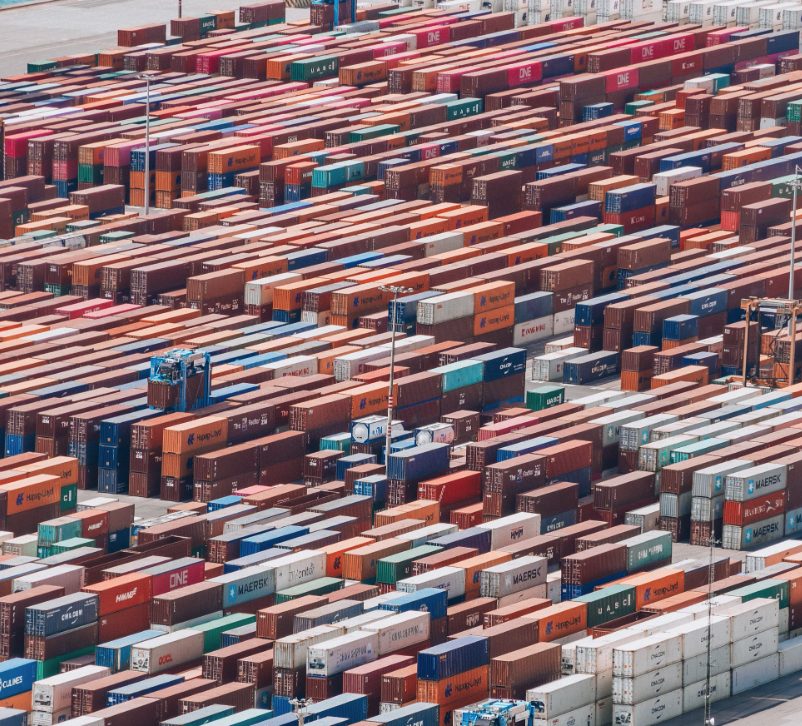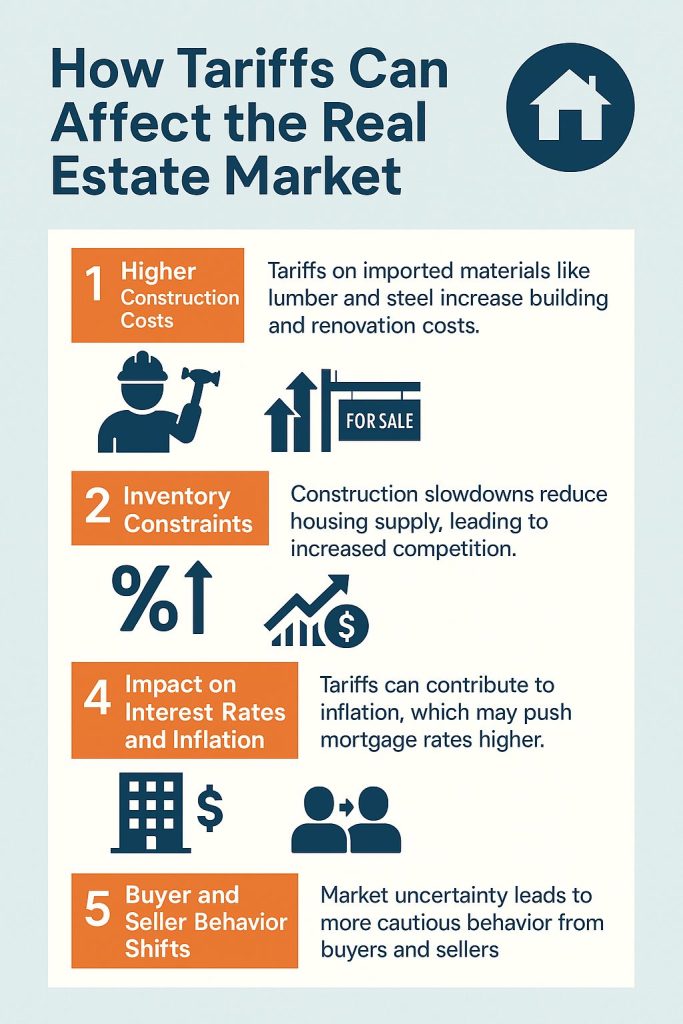When people think about tariffs — taxes on imported goods — they often picture international trade, manufacturing, or the price of goods like cars and electronics. But what many don’t realize is that tariffs can have a ripple effect on the real estate market, too.
Whether you’re a homeowner, buyer, investor, or builder, tariffs can quietly influence housing costs, market trends, and even your next renovation project. Here’s how.
1. Higher Construction Costs
Tariffs on imported materials like lumber, steel, aluminum, and appliances can drive up the cost of building new homes and renovating existing ones.
What this means:
-
Builders may slow down new construction due to higher material costs.
-
Renovation and remodeling projects can become more expensive for homeowners.
-
Fewer new homes on the market can lead to tighter inventory and increased prices for existing homes.
Even modest tariffs can add thousands of dollars to the cost of a newly built home — and those costs are often passed on to buyers.
2. Inventory Constraints
As construction becomes more expensive, some developers and builders may delay or cancel projects. This leads to reduced housing supply, which creates more competition among buyers — especially in already tight markets.
Result:
-
Home prices can rise due to limited inventory.
-
First-time buyers may be priced out.
-
Bidding wars become more common in popular areas.
3. Impact on Interest Rates and Inflation
Tariffs can contribute to overall inflation, especially if the cost of goods across industries starts rising. To combat inflation, the Federal Reserve may raise interest rates — and higher interest rates directly affect mortgage rates.
Why this matters:
-
Higher mortgage rates mean higher monthly payments for buyers.
-
Affordability declines, especially for entry-level buyers.
-
Some buyers may pause or back out of the market entirely.
Even a 1% increase in interest rates can significantly impact a buyer’s purchasing power.
4. Effect on Investment Properties
For real estate investors, rising material and labor costs can reduce profit margins on flips, rentals, and commercial properties. Tariffs may cause:
-
Delays in renovation timelines
-
Increased costs for imported fixtures and finishes
-
Hesitancy to invest in large development projects
In uncertain economic conditions, some investors may shift their focus or wait for more stable pricing before making their next move.
5. Buyer and Seller Behavior Shifts
When tariffs impact home prices or borrowing costs, both buyers and sellers tend to adjust their behavior:
-
Buyers may get more conservative with offers or expand their search to more affordable areas.
-
Sellers might hold off on listing, hoping for a better market later.
-
Homeowners may delay renovations or DIY more to avoid increased material costs.
In short, tariffs can introduce a sense of uncertainty — and the real estate market doesn’t love uncertainty.
Final Thoughts
While tariffs might seem like something only economists worry about, they can trickle down into everyday real estate decisions — from the price of a new home to your next kitchen remodel.
If you’re buying, selling, or investing, staying informed about economic shifts (like tariffs and interest rate changes) can help you make smarter decisions. And remember, the effects of tariffs often take time to appear — but they can leave a lasting impact.
Have questions about how current market conditions could affect your real estate goals? Let’s connect and talk strategy.


 Facebook
Facebook
 X
X
 Pinterest
Pinterest
 Copy Link
Copy Link

